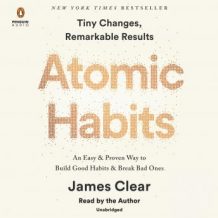Why Buddhism is True: The Science and Philosophy of Meditation and Enlightenment Audiobook
Why Buddhism is True: The Science and Philosophy of Meditation and Enlightenment Audiobook
- Fred Sanders
- Simon & Schuster Audio
- 2017-08-08
- 10 h 31 min
Summary:
In one of America’s most brilliant writers, a fresh York Times bestselling journey through psychology, philosophy, and a lot of meditation showing how Buddhism holds the key to moral clearness and long lasting happiness.
At the heart of Buddhism is a simple claim: The reason why we suffer-and the reason we make other folks suffer-is that people don’t start to see the globe clearly. At the heart of Buddhist meditative practice is a radical guarantee: We are able to learn to see the globe, including ourselves, more obviously and about Why Buddhism is True: The Research and Idea of Yoga and Enlightenment therefore gain a deep and morally valid pleasure.
Within this “sublime” (The New Yorker), pathbreaking reserve, Robert Wright shows how taking this promise seriously can change your life-how it could loosen the hold of stress and anxiety, regret, and hatred, and how it can deepen your gratitude of beauty and of other folks. He also displays why this change works, sketching on the latest in neuroscience and psychology, and armed with an acute understanding of human evolution.
This book may be the culmination of a personal journey that began with Wright’s landmark reserve on evolutionary mindset, The Moral Animal, and deepened as he immersed himself in meditative practice and conversed with some of the world’s most competent meditators. The result is a story that’s “provocative, informative and…deeply rewarding” (THE BRAND NEW York Times Book Review), and as entertaining since it is illuminating. Written with the wit, clearness, and grace that Wright is popular, Why Buddhism Is True lays the foundation for a religious life within a secular age and displays how, in a period of technological distraction and interpersonal division, we can conserve ourselves from ourselves, both as people and as a species.





